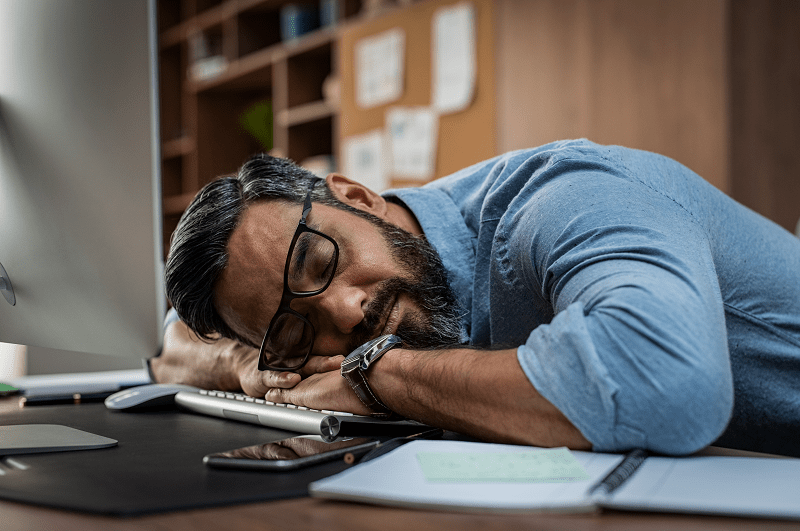“I can’t seem to have the energy to do things. I’m just getting by.”
“I did not do anything much but why am I so tired?”
“I’m tired of being tired.”
“I can’t seem to have the energy to do things. I’m just getting by.”
“I did not do anything much but why am I so tired?”
“I’m tired of being tired.”
These thoughts point to one of the core symptoms of clinical depression – fatigue. With over 95% of people with depression experiencing it, fatigue is tiredness or a loss of energy even when no physical effort is made.
Depression and fatigue are connected in various ways, and here are 5 possible reasons why depression makes you tired.

Depression can interrupt sleeping patterns in several ways. People with depression may experience insomnia, which is difficulty sleeping, thus causing more fatigue during the day.It may take longer for a person with depression to fall asleep (i.e., onset insomnia) or have difficulty sleeping through the night without awakening (i.e., maintenance insomnia).But not only does the lack of sleep cause fatigue, oversleeping or excessive daytime sleepiness or sleep (i.e., hypersomnia) may also cause loss of energy over a period.
Having depression can be stressful. Like a vicious cycle, depression can lead to chronic stress, and stress can be a contributing factor to one’s depression.In addition to one’s personal, family, work, and social responsibilities, having to deal with a mental health condition can drain anyone’s energy level.When each of us has a finite amount of energy each day, juggling between depression and external demands can be exhausting.
A person’s eating habits may also be affected due to depression. You may have a poorer appetite that leads you to eat less or skip meals.On the flip side, you may have an overwhelmingly increased appetite for sweet cravings with poor nutritional valueLarge amounts of processed foods, added and refined sugars, and fried foods can lead to lethargy and grogginess.
Depression affects the chemicals in the brain (e.g., dopamine, norepinephrine, acetylcholine, and histamine) that influences how alert and awake a person is. Neurological research also found reduced brain activity at the prefrontal cortex in people with depression with fatigue.
As such, antidepressant medications that increases the levels of neurotransmitters play a role in managing depressive symptoms.
Fatigue can also be a side effect of some antidepressant medications (e.g., selective serotonin reuptake inhibitor (SSRI), serotonin–norepinephrine reuptake inhibitor (SNRI), tricyclic antidepressants (TCA).
Do consult your psychiatrist if you think the medication is causing your tiredness and disrupting your daily functioning.

As fatigue is found to be one of the main symptoms that severely impact our daily functioning, here are some ways that could possibly address your depression fatigue.
As depression may cause disruption in sleep, it can be helpful to develop good sleep hygiene. The following outlines several strategies to develop good sleeping habits:
Being kind to yourself especially in times of distress is of utmost importance, and that includes when one is experiencing depression fatigue.
Self-compassion has three core components – mindfulness, common humanity, and self-kindness. In practice, you can notice that you’re having loss of energy (mindfulness), be reminded that you are not alone and as close to 95% of people with depression have fatigue too (common humanity), and be gentle and patient with yourself (self-kindness).
Self-compassion can be practiced by asking the quintessential question, “What do I truly need?”, and then provide yourself that.
It is common that having depression can make it more challenging to workout. At the same time, having a realistic and consistent exercise routine can help to reduce depression fatigue can deepen sleep. Try not to exercise too close to bedtime and plan to finish at least four hours before you sleep.